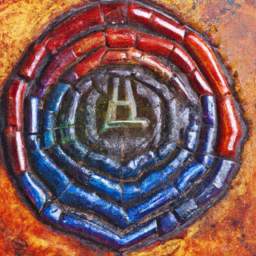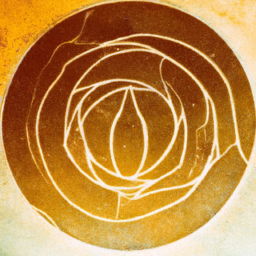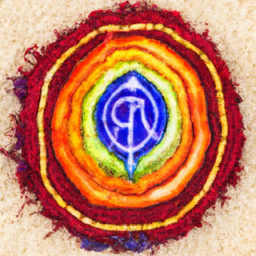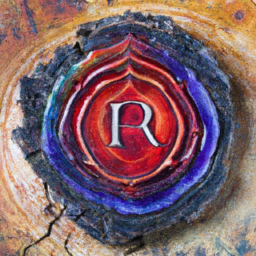?
Chakras, a concept deriving from ancient Indian spiritual traditions, have captured the attention of many in recent years. These energy centers, which are believed to exist within the human body, are said to influence our physical, emotional, and spiritual well-being. Among the seven main chakras, the sacral and root chakra are often grouped together due to their proximity and similar characteristics. But are these two chakras really the same? Let’s dive deeper and find out.
Understanding the Sacral and Root Chakra
Both the sacral and root chakra are located in the lower part of the body, with the sacral chakra positioned just below the navel and the root chakra at the base of the spine. The sacral chakra, also known as the Svadhisthana in Sanskrit, is associated with creativity, pleasure, and sexuality. It is believed that a balanced sacral chakra allows us to express ourselves freely and enjoy the pleasures of life. On the other hand, the root chakra, or Muladhara, is linked to our sense of security, stability, and survival. This chakra is responsible for our basic needs, such as food, shelter, and safety. It is also believed to be the foundation of all other chakras.
Are They Really the Same?
While the sacral and root chakra share some similarities, they are not the same. Each chakra has its unique qualities and functions. The sacral chakra focuses on emotional and creative aspects of our being, while the root chakra deals with our physical survival and security. However, these two chakras are closely connected, and the imbalance of one chakra can affect the functioning of the other.
For instance, when the sacral chakra is overactive, it can lead to impulsive and reckless behaviors, affecting our sense of stability and security, governed by the root chakra. Similarly, an underactive root chakra can result in feelings of insecurity and fear, hindering our ability to express ourselves freely through the sacral chakra. It is essential to have a balanced flow of energy in both these chakras to achieve overall well-being.
Ways to Balance the Sacral and Root Chakra
One way to balance these chakras is through meditation. Focusing on each chakra while meditating can help identify any imbalances and work towards restoring the flow of energy. Additionally, activities like yoga, dancing, and creative pursuits can also help stimulate and balance the sacral chakra. On the other hand, grounding practices, such as walking barefoot on the earth or spending time in nature, can help nourish the root chakra.
The Importance of Chakra Balancing
Chakra balancing is essential for overall physical, emotional, and spiritual well-being. When all our chakras are functioning harmoniously, we can experience a sense of balance, peace, and vitality. It is crucial to pay attention to our chakras, identify any imbalances, and take the necessary steps to restore harmony.
Final Thoughts
In conclusion, while the sacral and root chakra share similar characteristics, they are not the same. Understanding the functions and imbalances of these chakras can help us work towards achieving a balance between our emotional and physical aspects. By taking care of our chakras, we can experience overall well-being and lead a healthy and fulfilling life.
Remember, our chakras are interconnected, and it is crucial to pay attention to all of them to lead a balanced and harmonious life.





No, they are not related. No, sacral and root chakras are two different chakras with different physiological and psychological functions.
From what I understand the sacral chakra is related to emotions related to creativity and sexuality, while the root chakra is related to feeling grounded and security.
#It’sAChakralWorld: Absolutely correct! The sacral chakra is associated with creativity, vitality, emotion, pleasure, and sensuality, while the root chakra is associated with survival, security, and grounding. Both are essential parts of our wellbeing, but serve very different functions.